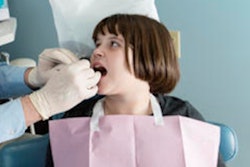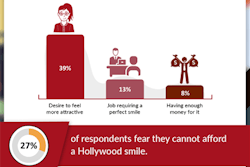
Economic, social, and environmental factors play a role in poor oral health in adults in California. However, income affected the status of their oral health the most, according to a policy brief released in November by the UCLA Center for Health Policy Research.
Approximately 1 in 4 adults in California report having poor oral health, but that number climbs to approximately 1 in 2 among the state's lowest-income residents. The figure falls to 1 in 5 people among those with the highest incomes, concluded authors Nadereh Pourat, PhD, associate director of the center, and Dr. Maria Ditter.
"Our analyses confirmed that most of the factors we studied were associated with poor oral health, and that adults with the lowest income experienced greater disparities," they wrote.
The researchers analyzed data from the 2017 and 2018 California Health Interview Survey (CHIS). They looked at income, education, employment, immigration status, dental insurance coverage, and how people in the community were perceived (to evaluate "social cohesion").
Among the findings, 45% of those with the lowest incomes -- 0% to 138% of the federal poverty level -- reported having poor oral health. That number ticked down as income levels rose: 17% of those with incomes at or above 250% of the federal poverty level said they had poor oral health, according to the authors.
Additionally, among those who were unemployed, adults with the lowest incomes (56%) reported poor oral health more often than those who had higher incomes, they wrote.
The research shows the need for screening tools for nondental healthcare providers and organizations to assess patients' oral health status and to provide them with patient-centered services that address the needs of the whole person, the authors wrote.
"Addressing social factors that determine oral health requires a shift toward a focus on promoting the health of the whole person and integrating oral health into general efforts targeting socioeconomically disadvantaged populations," they wrote.



















